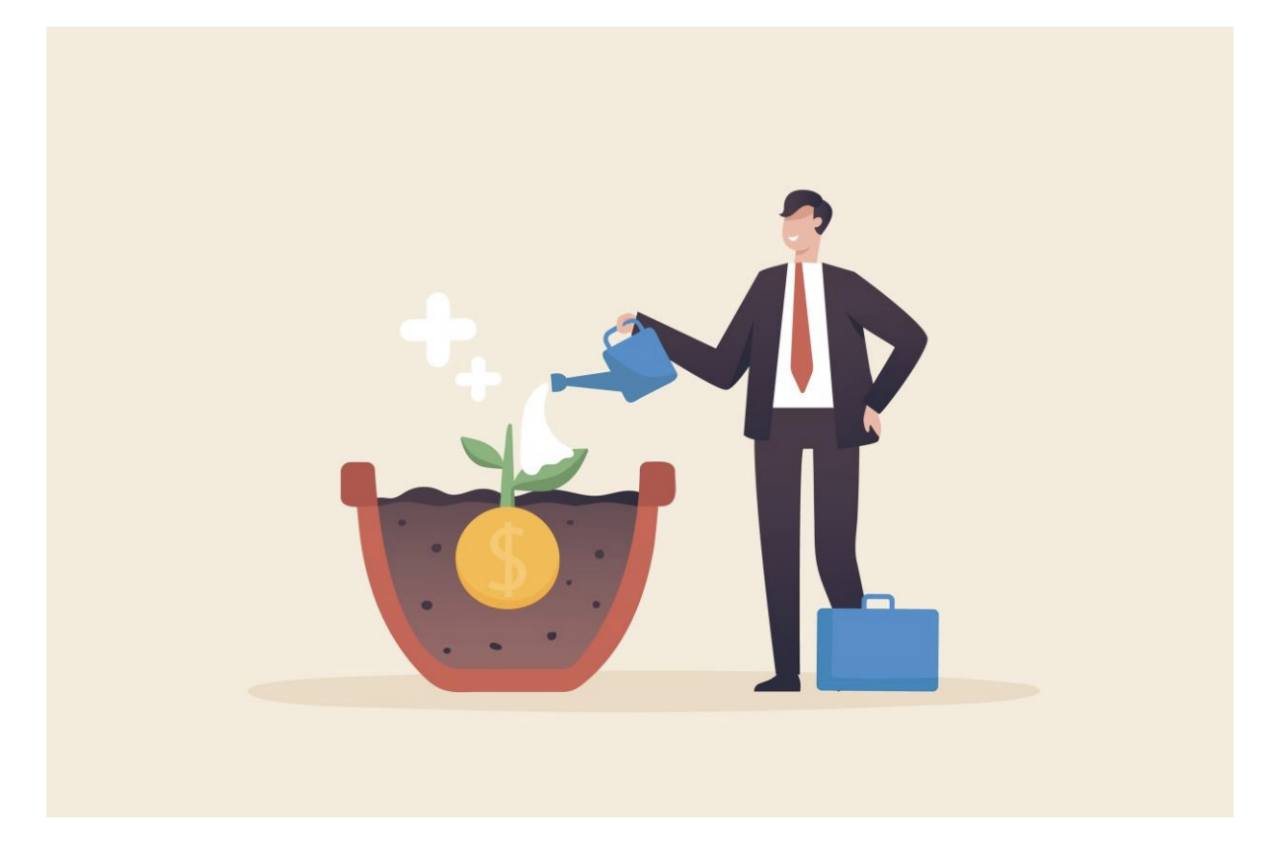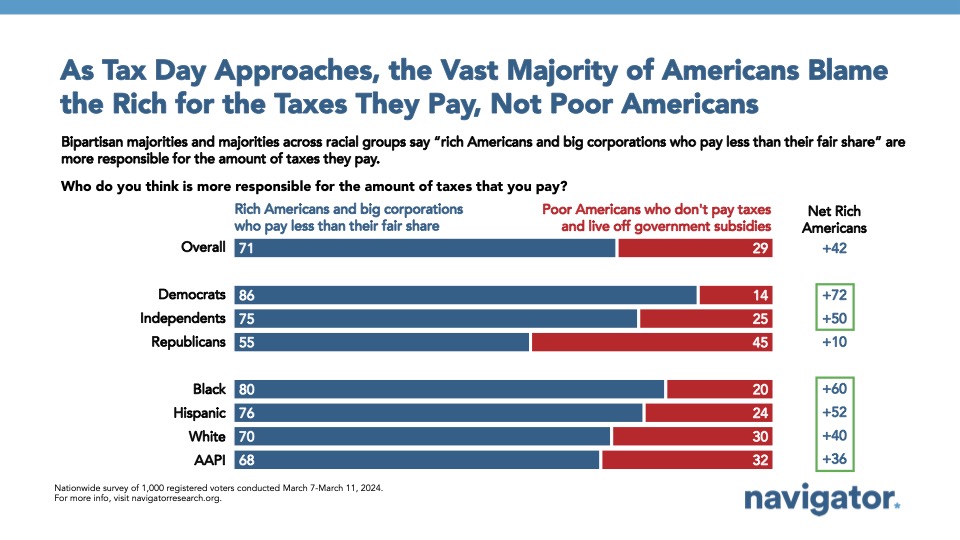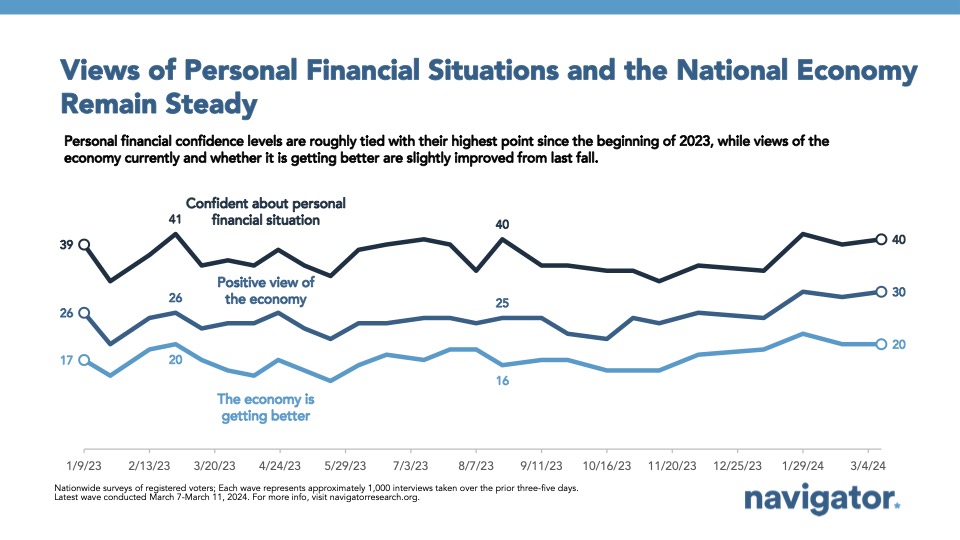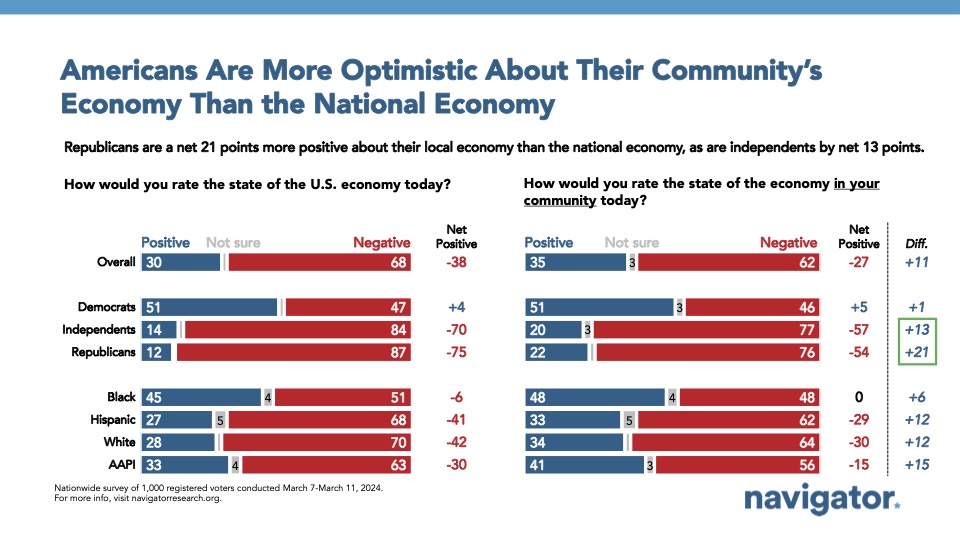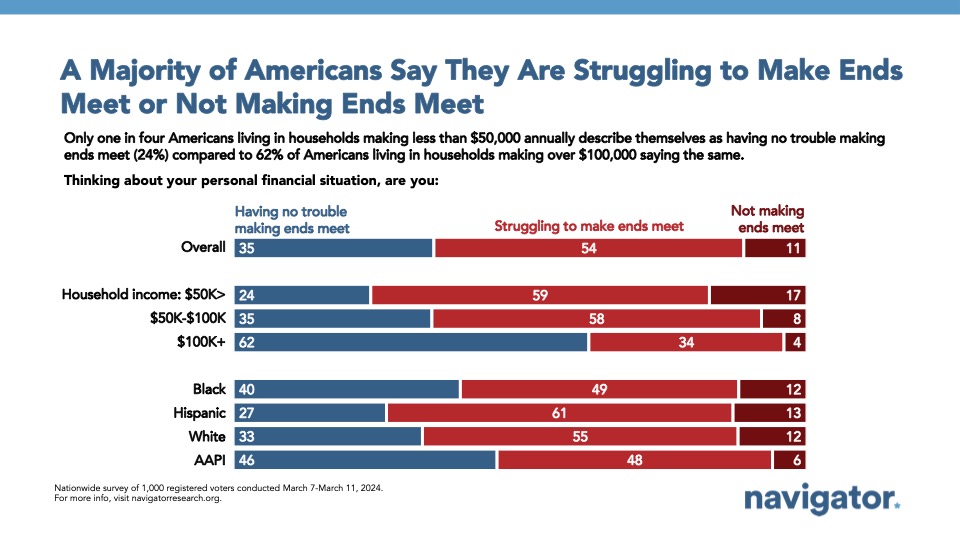Poll: Taxes and the Economy
This Navigator Research report contains polling data on Americans’ perceptions around the national economy and economy in their local community, tracking on confidence of Americans’ personal financial situations, and who Americans blame most for the amount of taxes they pay.
The vast majority of Americans blame the rich for the taxes they pay, not poor Americans.
By an overwhelming margin, people believe the rich and big corporations who pay less than their fair share in taxes are more responsible for the amount of taxes they pay than poor Americans who don’t pay taxes. 71 percent say they view “rich Americans and big corporations who pay less than their fair share” as more responsible for the amount of taxes they pay compared to just 29 percent who say they blame “poor Americans who don’t pay taxes and live off government subsidies” more. Majorities across party lines blame the rich and big corporations more than poor Americans, including 86 percent of Democrats, 75 percent of independents, and 55 percent of Republicans.
- Over three in four who are unfavorable to both Biden and Trump blame big corporations and rich Americans who don’t pay their fair share more for the amount of taxes they pay (77 percent), as do nearly four in five Americans working in service industry jobs (78 percent) and seven in ten working in blue collar jobs (70 percent).
Americans remain pessimistic about the economy, but are slightly more positive about the economy in their local community.
68 percent of Americans rate the state of the national economy negatively, though 30 percent rate the economy positively, which is the highest positive sentiment since the beginning of 2023. A slightly higher share — 35 percent — rate the economy in their community positively while 62 percent rate it negatively.
- A majority of Democrats believe the economy is either getting better or staying the same (66 percent; 37 percent say it is getting better and 29 percent say it is staying the same). By contrast, three in five independents (60 percent) and seven in ten Republicans (71 percent) believe the U.S. economy is getting worse.
Three in five Americans are uneasy about their personal financial situation and most describe themselves as struggling to make ends meet.
57 percent of Americans say they are uneasy about their personal financial situation over the next few months, including 25 percent who say they are “very” uneasy. Similarly, a majority describes themselves as struggling to make ends meet (54 percent), with an additional 11 percent who say they are not making ends meet, a similar finding to our battleground research in closely-divided House districts in November 2023. Women under the age of 55 are experiencing higher levels of uneasiness, with 67 percent feeling uneasy about their personal financial situations, which is 16 points more negative than men under the age of 55 (51 percent).
- Nearly four in five Americans (77 percent) under the age of 55 say they are either struggling to make ends meet (62 percent) or not making ends meet (15 percent) as compared to half of Americans over the age of 55 (50 percent; 43 percent struggling who say they are struggling to make ends meet and 7 percent who say they are not making ends meet).
